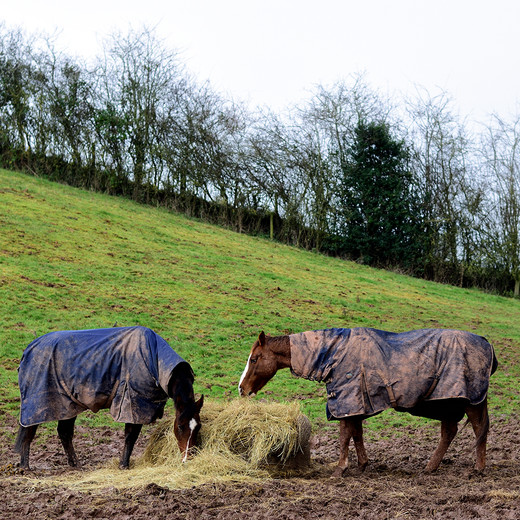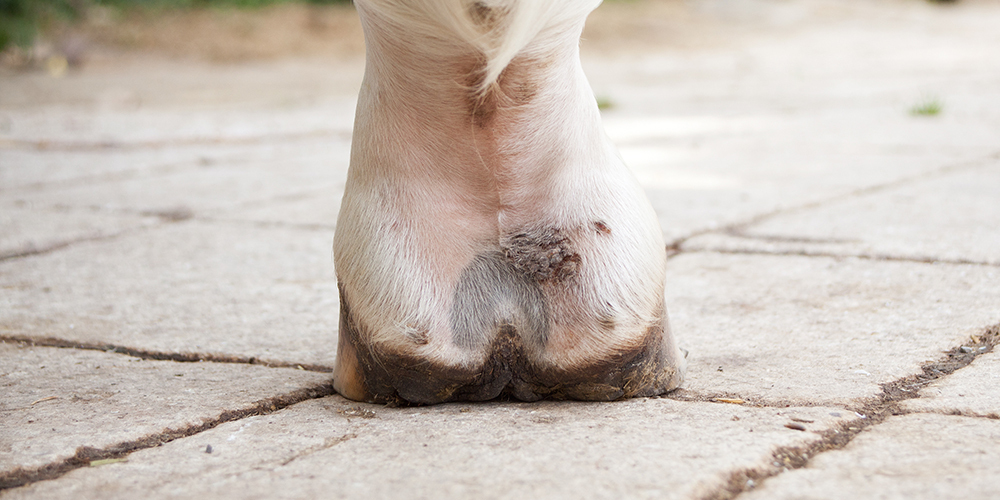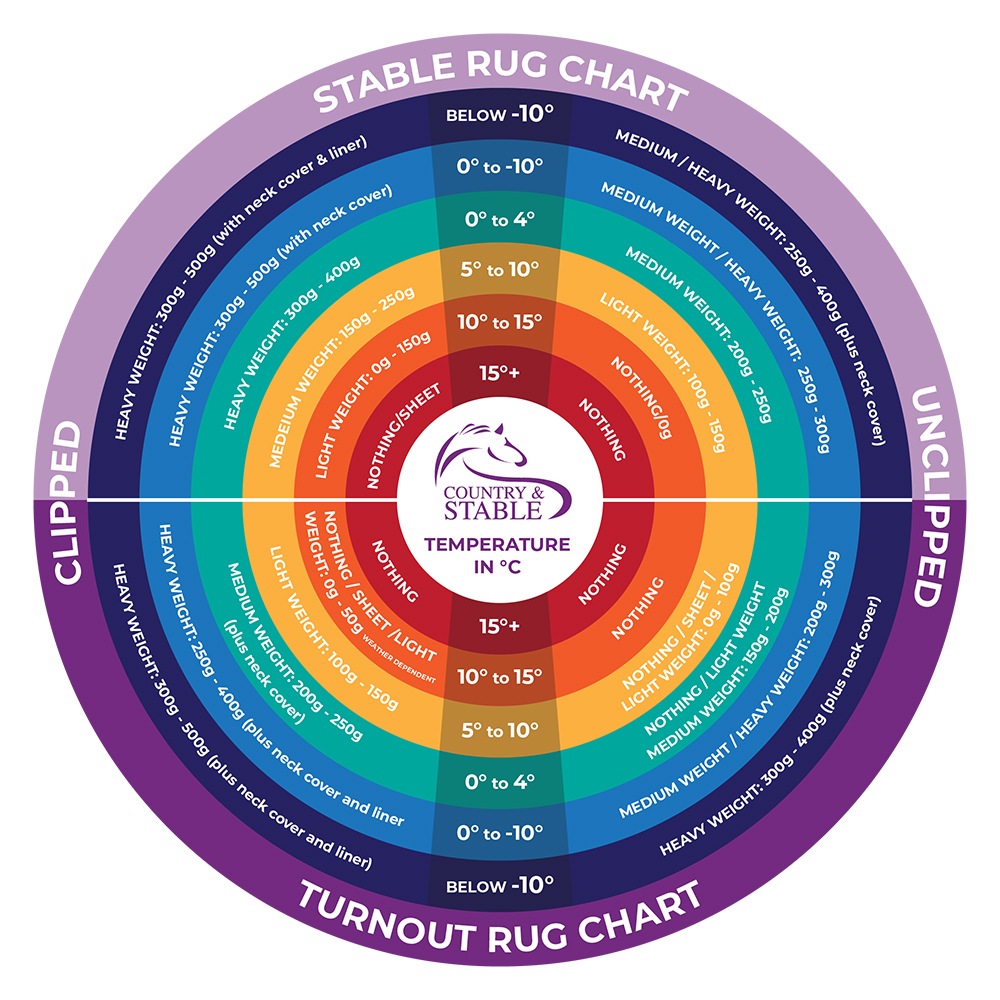Winter Care for Horses
Oct 26th 2023

When we begin to switch our central heating systems on and pull out our winter coats and jumpers, many of us horse owners begin to worry about our equine friends outside. While horses are impressively tolerant of cold conditions, the winter can bring plenty more challenges. With the seasons changing, we need to adjust our horses' routines and needs. Winter, marked by shorter daylight hours and unpredictable weather, can sometimes pose a challenge. Nevertheless, it need not be stressful. If we prepare and organise a good horse winter care plan, you will sail through winter easily.
Feeding
The first aspect we need to look at is feeding, as it may be necessary to increase feed in the wintertime. With less grass readily available and possibly more restricted turnout, we need to consider supplementing this drop in forage. This can be in the form of increasing your horse’s hard feed if they drop condition or providing additional hay to horses in the stable or out in the field. When supplying hay out in the field with more than one horse, ensure there are more hay piles than horses to help avoid conflict. Also, do not place hay near troughs or gateways, as these are high-traffic areas and tend to get churned up.
Feeding your horse over winter will vary, and consideration must be taken as to whether they are a good or a poor doer. It is important before increasing your horse's feed to monitor their weight. Use a weigh tape every two weeks to check if your horse is maintaining, losing, or gaining weight. Doing this lets you keep a close eye on any changes and adjust the feeding programme if needed. A weigh tape is only a rough guide; you may wish to use a weighbridge, and many vet practices and feed companies offer this service. You can then discuss the correct winter feed management programme with them.
Watering
The average horse drinks 3-4 buckets of water a day, so it’s vital they have access to fresh water and that it does not become frozen. In case your taps freeze, ensure you have emergency containers filled with water. You can add a ball or warm water to buckets to help prevent freezing. If you have automatic water drinkers, check the pipes are insulated or ensure you provide a bucket of water. Check troughs and buckets in the field daily and break ice to ensure your horse always has access to water.
Rugging
When it is cold outside, it can be really tempting to rug up your horse nice and cosy, especially if we are feeling the cold. Horses are extremely good at regulating their own body temperature and can warm themselves by moving around or eating more forage. However, they do not possess the ability to cool themselves down easily, and overheating can put your horse at risk of life-threatening conditions like colic and increased risk of laminitis. Therefore, it is important not to over-rug your horse.
When rugging, it is always worth taking your horse's condition, age, and breed into account, as each will have their own individual needs. Also, if they are clipped, they are likely to require a little more coverage than a non-clipped horse. View our handy rugging chart to help you make the right choice. Remember, you know your horse best, and this is just a rough guide.
Pasture Management
Depending on your individual circumstances, your winter care will vary. Your horse’s turnout time may be restricted, or you may be lucky enough to have all year turnout. Either way, a field management program is essential. Your field should have either a man-made field shelter or a natural shelter such as thick hedges or tree lines.
If your horse does spend longer periods of time stabled, ensure you provide extra enrichment to help meet their behaviour needs. You could introduce a hayball feeder to help slow down the consumption of hay or a stable toy to provide entertainment.
Health Care
An important area to look at when planning your winter care for horses is maintaining their health. The cold, wet, muddy winter can increase the risk of your horse developing certain conditions such as mud fever and rain scald. If you know your horse is susceptible to mud fever, make sure you add the application of a mud guard to your turnout regime.

Your grooming method should also be adapted to cater for winter conditions. If your horse is left un-rugged, try not to over-groom as this strips the natural oils from the coat. Use a dandy brush and rubber curry comb to remove mud and sweat. You can wash off sweat; try to use warm water and as little as possible so as not to give your horse a chill. Then put a cooler rug on to dry them off. Keep your horse's hooves in tip-top condition by regularly picking them out. Try to ensure your horses have a hard-standing area that's out of the mud and wet to allow their hooves to dry out.
If your horse is working during the winter months, you may need to consider clipping. In winter, your horse grows a thick winter coat, which can cause excess sweating, resulting in chills and sores. The type of clip you require depends on your horse's workload and circumstances. There are many options to choose from: full, hunter, blanket, chaser, trace, and bib. If you are unsure what your horse needs, start by removing a small amount of hair. This also applies if you wish to get your horse used to being clipped. Remember, clippers are noisy and can upset your horse, so take care when using them.
Exercising
Maintaining your horse's fitness can be challenging with fewer daylight hours and poor weather. You may choose to give your horse a rest period or rough off. If this is the case, you should gradually do this over a 2-3 week period.
If you do keep your horse in work, varied activities will help provide stimulation. This can be in the form of putting them on a horse walker , in hand walking, lunging or various ridden work – hacking and schooling. The weather conditions should always be considered when choosing which work to do. If it freezes and you are not lucky enough to have an indoor arena, some in-hand work would be a good option.
Winter care for horses is a crucial aspect of responsible horse ownership. As the seasons change and colder weather sets in, we must adapt our horse care routines to ensure the well-being and health of our equine companions. With proper care and attention to their specific needs, you and your horse can easily navigate winter and ensure they thrive during the winter months. If you need anything to survive winter, check out our winter care page or call us for assistance.





